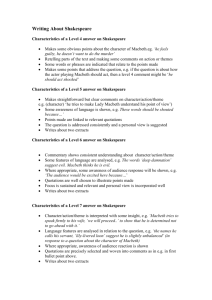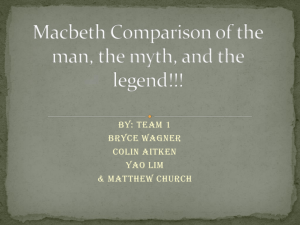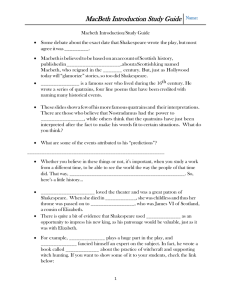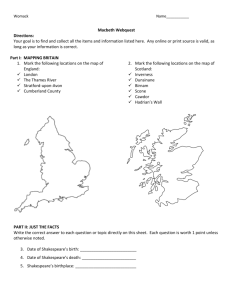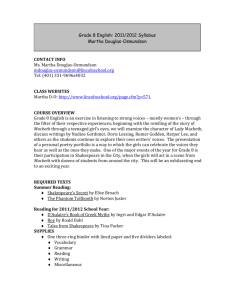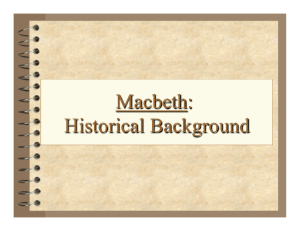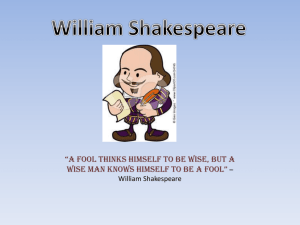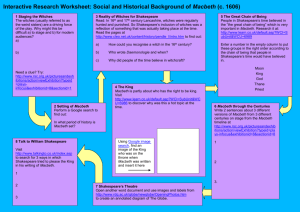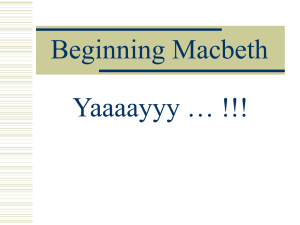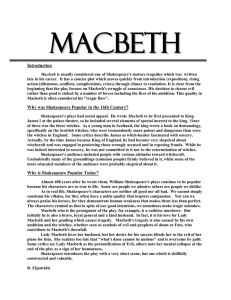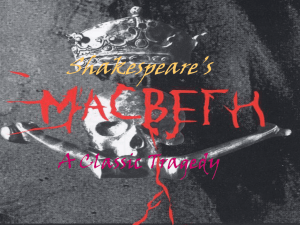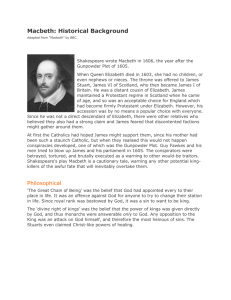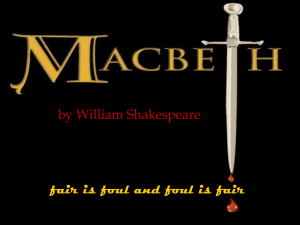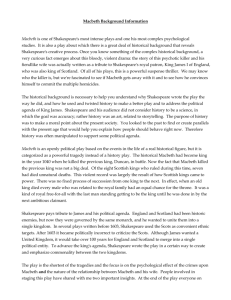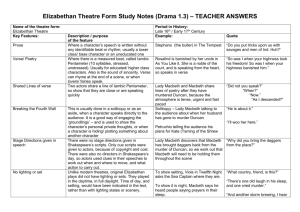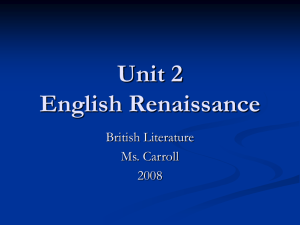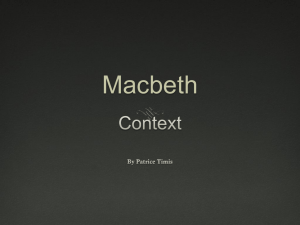Historical Context
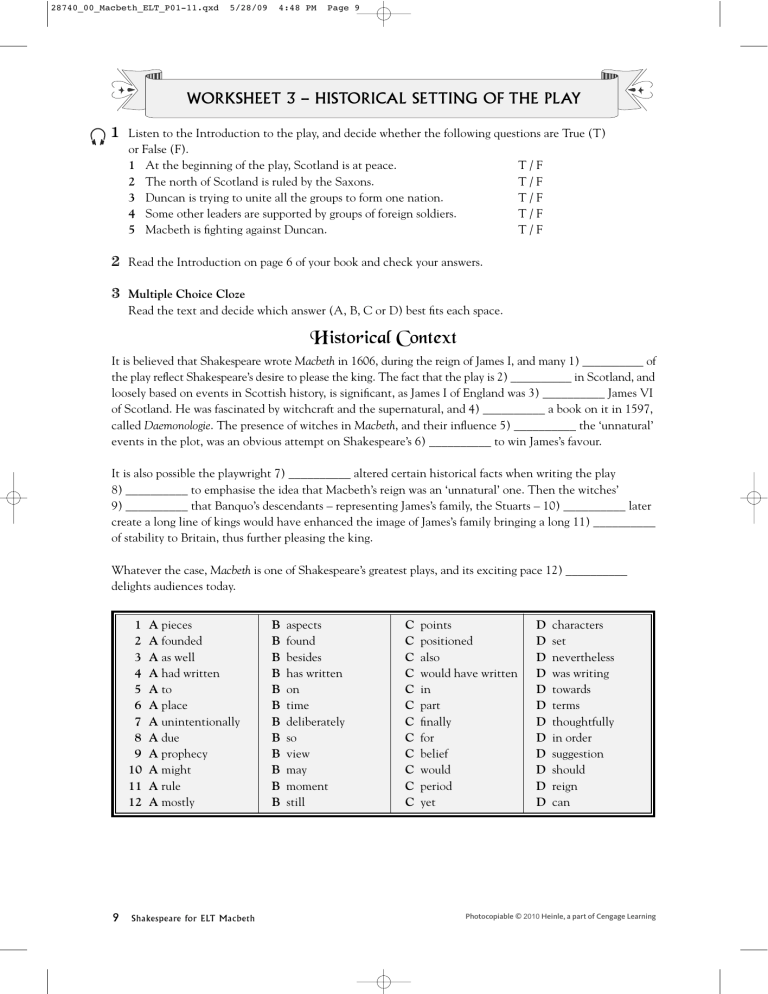
28740_00_Macbeth_ELT_P01-11.qxd 5/28/09 4:48 PM Page 9
WORKSHEET 3 – HISTORICAL SETTING OF THE PLAY
1 Listen to the Introduction to the play, and decide whether the following questions are True (T) or False (F).
1 At the beginning of the play, Scotland is at peace.
T / F
2 The north of Scotland is ruled by the Saxons.
3 Duncan is trying to unite all the groups to form one nation.
4 Some other leaders are supported by groups of foreign soldiers.
5 Macbeth is fighting against Duncan.
T / F
T / F
T / F
T / F
2 Read the Introduction on page 6 of your book and check your answers.
3 Multiple Choice Cloze
Read the text and decide which answer (A, B, C or D) best fits each space.
Historical Context
It is believed that Shakespeare wrote Macbeth in 1606, during the reign of James I, and many 1) __________ of the play reflect Shakespeare’s desire to please the king. The fact that the play is 2) __________ in Scotland, and loosely based on events in Scottish history, is significant, as James I of England was 3) __________ James VI of Scotland. He was fascinated by witchcraft and the supernatural, and 4) __________ a book on it in 1597, called Daemonologie . The presence of witches in Macbeth , and their influence 5) __________ the ‘unnatural’ events in the plot, was an obvious attempt on Shakespeare’s 6) __________ to win James’s favour.
It is also possible the playwright 7) __________ altered certain historical facts when writing the play
8) __________ to emphasise the idea that Macbeth’s reign was an ‘unnatural’ one. Then the witches’
9) __________ that Banquo’s descendants – representing James’s family, the Stuarts – 10) __________ later create a long line of kings would have enhanced the image of James’s family bringing a long 11) __________ of stability to Britain, thus further pleasing the king.
Whatever the case, Macbeth is one of Shakespeare’s greatest plays, and its exciting pace 12) __________ delights audiences today.
1 A pieces
2 A founded
3 A as well
4 A had written
5 A to
6 A place
7 A unintentionally
8 A due
9 A prophecy
10 A might
11 A rule
12 A mostly
B aspects
B found
B besides
B has written
B on
B time
B deliberately
B so
B view
B may
B moment
B still
C points
C positioned
D characters
D set
C also D nevertheless
C would have written D was writing
C in
C part
C finally
C for
D
D
D
D towards terms thoughtfully in order
C belief
C would
C period
C yet
D suggestion
D should
D reign
D can
9 Shakespeare for ELT Macbeth Photocopiable © 2010 Heinle, a part of Cengage Learning




